
SHULAMITH Koenig— who since 1988 was the founding president of PDHRE, a movement for Human Rights Learning (formerly known as People’s Decade for Human Rights Education)—has moved into infinity, but hers was a life lived exceptionally well.
She has left the world which she reshaped with the quest of human rights to have human rights education and learning. As we well know, one may be educated but never learn to care for hap fewer other; and formal education about human rights may still leave wholly behind rightless human beings and disadvantaged people.
For Shulamith, human rights learning was ethics of care and not just an ethic of legal rights. She leaves behind many difficult legacies, including one (were to invert the phrase of French philosopher and historian Michel Foucault) the documents of today become monuments of tomorrow.
Shulamith was awarded the 2003 UN Prize in the field of human rights — an award given to five people every five years since 1966 and counts among them Nelson Mandela, Eleanor Roose velt, Martin Luther King Jr., and Jimmy Carter.
This story is from the {{IssueName}} edition of {{MagazineName}}.
Start your 7-day Magzter GOLD free trial to access thousands of curated premium stories, and 9,000+ magazines and newspapers.
Already a subscriber ? Sign In
This story is from the {{IssueName}} edition of {{MagazineName}}.
Start your 7-day Magzter GOLD free trial to access thousands of curated premium stories, and 9,000+ magazines and newspapers.
Already a subscriber? Sign In
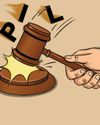
PIL, Difficult To Swallow?
In a recent ruling, the Bombay High Court lamented the increasing number of frivolous public interest litigations being filed in courts and echoed the sentiments of the Supreme Court that such litigations are the bane of the judicial system. Is there any way to restrict their misuse?
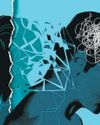
Till Infertility Do Us Part...
The Calcutta High Court slammed a husband for initiating divorce proceedings due to his wife's infertility and asked him to be a pillar of support for her. Courts have often taken an empathetic view in such matters
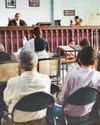
IS THAT LEGAL?
Ignorance of law is no excuse. Here are answers to frequently asked queries regarding matters that affect us on a day-to-day basis

The Big Lie
In America, The Big Lie is an idiom used by Donald Trump's opponents and the media to describe his constant gripe about election fraud. Now, it seems more suited to another Republican, Congressman George Santos (right), who has been facing growing calls to resign after he admitted fabricating parts of his resume and biography since his election in New York last year.

Flying into the Sunset
Over 50 years since the first and original jumbo jet, the Boeing 747, took to the skies and revolutionized air travel, the last of the legendary aircraft (right) was delivered to a freight charter company, bringing down the curtain on one of aviation's most successful products.
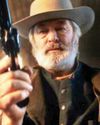
Star Crossed
Actor and producer Alec Baldwin is a Hollywood legend, having starred in a range of movies, award winning TV sitcoms, and theatre. He was most recently seen in Mission Impossible Fallout, which is an apt description of his current situation.

Walkouts in the UK
An estimated half a million workers have gone on strike, shutting down thousands of schools, public transport and border disruption. It is the biggest day of industrial action for more than a decade.
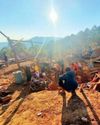
Myanmar's Misery
Two years after the military coup ousted the elected government led by Aung San Suu Kyi, the brutal crackdown by the junta on so-called \"insurgents\" and civilian protesters has reached a new level with the use of air strikes, a new and deadly tactic in the ongoing civil war.
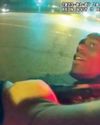
AMERICA'S ANGST
From messy, divisive politics to a series of mass shootings, and now black officers brutally beating another black man to death as seen in bodycam videos, America's domestic convulsions are cause for serious introspection
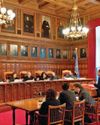
JUSTICE LEAGUE
There are few judicial appointment procedures in the world that are completely bereft of the overarching presence of either the executive or the legislature, or both. In the end, the judge is left with all the powers vested in him/her by the constitution to uphold the rule of law, within an atmosphere of external influences